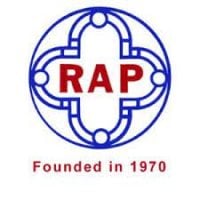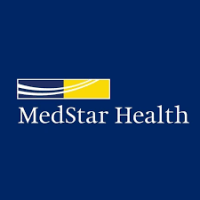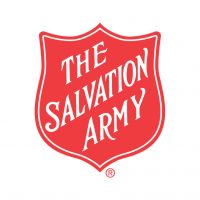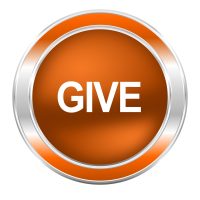
DC Recovery Community Alliance (DCRCA)
Drug Rehab Center in Washington, District of Columbia
- Substance Abuse
- Opioid Addiction
- Drug Addiction
- Alcoholism
The DC Recovery Community Alliance (DCRCA) is a well-known addiction treatment facility located in Washington, DC that offers comprehensive and evidence based drug rehab programs along with residential and outpatient services such as therapy, counseling, education, and peer support groups.
About
DC Recovery Community Alliance (DCRCA) is an addiction treatment facility located in Washington, DC, offering a wide range of services for individuals seeking sobriety. They specialize in treating people suffering from alcoholism, opioid addiction, substance abuse, and drug addiction. With a commitment to the recovery community, DCRCA provides a safe and supportive environment for individuals to heal and overcome their addiction. Their dedicated team of professionals understands the unique challenges faced by those struggling with addiction and provides personalized treatment plans tailored to each individual's needs. Whether it is through counseling, therapy, or support groups, DCRCA is committed to helping individuals reclaim their lives and achieve long-term sobriety.
At DC Recovery Community Alliance (DCRCA), individuals can expect to receive comprehensive and evidence-based treatment for their addiction and substance abuse. They offer drug rehab levels of care, ensuring that individuals receive the appropriate level of support and treatment based on their specific needs. DCRCA employs a multidisciplinary approach to addiction treatment, combining various therapeutic modalities to address the physical, psychological, and emotional aspects of addiction. This may include individual counseling, group therapy, family therapy, and 12-step programs. Additionally, DCRCA provides educational resources and life skills training to help individuals develop healthier coping mechanisms and prevent relapse. With a focus on community and support, DCRCA also offers ongoing aftercare services and peer support programs to assist individuals in their journey towards long-lasting recovery.
Genders
Ages
Modality
Additional
Conditions and Issues Treated
Recovering from substance abuse is an essential part of a healthy life for many people. It’s a long and challenging process, but it can be worth it in the end if you manage to get through all parts. Detoxifying your body, rehabilitation after that time passes or when needed (depending on what type), and then recovery while also receiving therapy support throughout this entire process.
A standard route to starting recovering from substance abuse and addiction is through a detoxification center. There you can completely heal your body and mind and continue on the path of recovery without feeling any of the lingering effects of substances.
Within the past decade, opioid addiction has become a nationwide epidemic. The United States hosts one of the world’s highest rates of opioid use or abuse and has one of the highest rates of opioid-related deaths. In the United States, opioid drugs are classified as Schedule II-IV controlled substances due to their highly addictive properties and potential for abuse. These include morphine, opium, heroin, oxycodone, hydrocodone, methadone, and fentanyl. Physicians usually prescribe opioids to help control pain.
Over time, opioid users develop a tolerance for the drugs, which makes it difficult, if not impossible, to function without them. In turn, opioid users often resort to illicit means of obtaining the drugs. These means can include drug dealers, friends, and family members who do not have legitimate prescriptions for the drugs. Opioid addiction can quickly lead to heroin use, especially those seeking more intense highs than prescription opioids offer. Due to the high risk of overdose, heroin users are at a much higher risk for illness and death.
Levels of Care Offered
This center offers a variety of custom treatment tailored to individual recovery. Currently available are Drug Rehab, with additional therapies available as listed below.
Therapies & Programs
Individualized Treatment is essential because it gives addicts the ability to participate in a program that meets their unique needs. An addict should work with professionals who understand what they’re going through, especially if the addict is actively using. Finding the right treatment program for an addict is difficult, but it’s even harder without communicating with those who have experience treating your specific situation.
Group therapy sessions provide recovering addicts with a chance to cope with everyday situations that many face. Group therapy sessions are held in rehab facilities, clinics, churches or community centers that offer drug addiction treatment.
People who attend these groups are encouraged to voice their feelings and support other addicts in recovery. This helps group members strengthen their own recovery program while cheering on others who are struggling with sobriety.
Life skills training is beneficial for addicts in recovery because it helps them learn how to take care of themselves and improve their quality of life, which can promote feelings of purpose and motivation.
This works by teaching individuals life-enhancing skills that support positive living, including:
- Healthy lifestyle habits
- Skills to effectively manage stress
- Effective communication skills to help them get their needs met without turning to drugs or alcohol
- Money management and budgeting skills so they can continue to take care of themselves after treatment ends.
Payment Options Accepted
For specific insurance or payment methods please contact us.
Additional Details
Specifics, location, and helpful extra information.
Washington, District of Columbia 20005 Phone Number(202) 776-0645 Meta DetailsUpdated November 25, 2023
Staff Verified
Patient Reviews
There are no reviews yet. Be the first one to write one.
Washington, District of Columbia Addiction Information
In Washington, District of Columbia, there were 9,912 admissions to drug and alcohol treatment facilities in 2016. The most commonly abused drugs in the district include cocaine, heroin, and marijuana. Families are struggling to cope with addiction, and many people are looking for help. Many excellent drug rehab centers in Washington, District of Columbia, can help people struggling with addiction get clean and sober.
Treatment in Nearby Cities
Centers near DC Recovery Community Alliance (DCRCA)

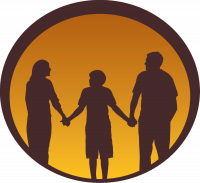
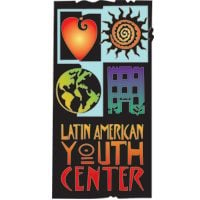
The facility name, logo and brand are the property and registered trademarks of DC Recovery Community Alliance (DCRCA), and are being used for identification and informational purposes only. Use of these names, logos and brands shall not imply endorsement. RehabNow.org is not affiliated with or sponsored by DC Recovery Community Alliance (DCRCA).
%20in%20Washington%20District%20of%20Columbia.png)
